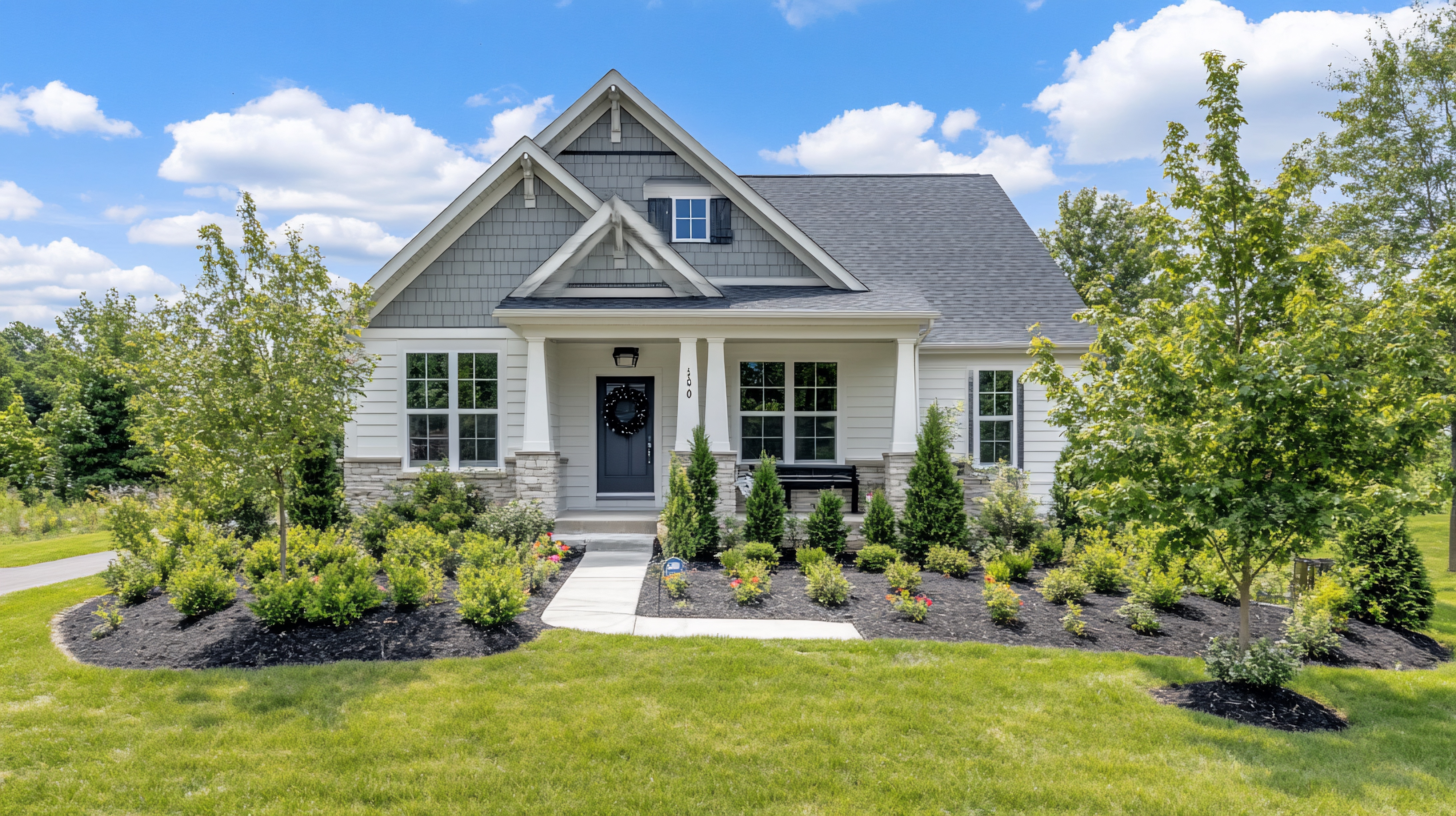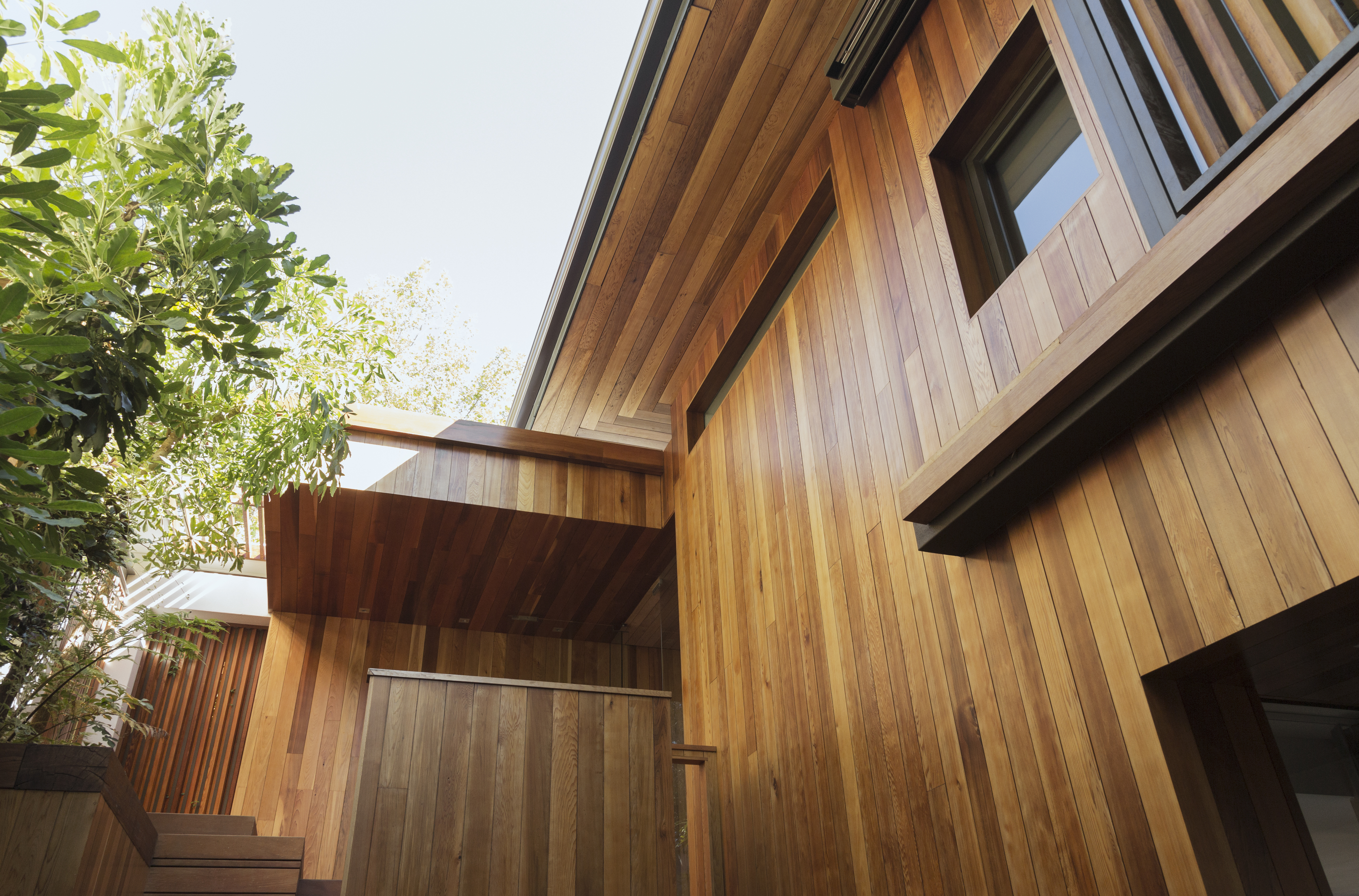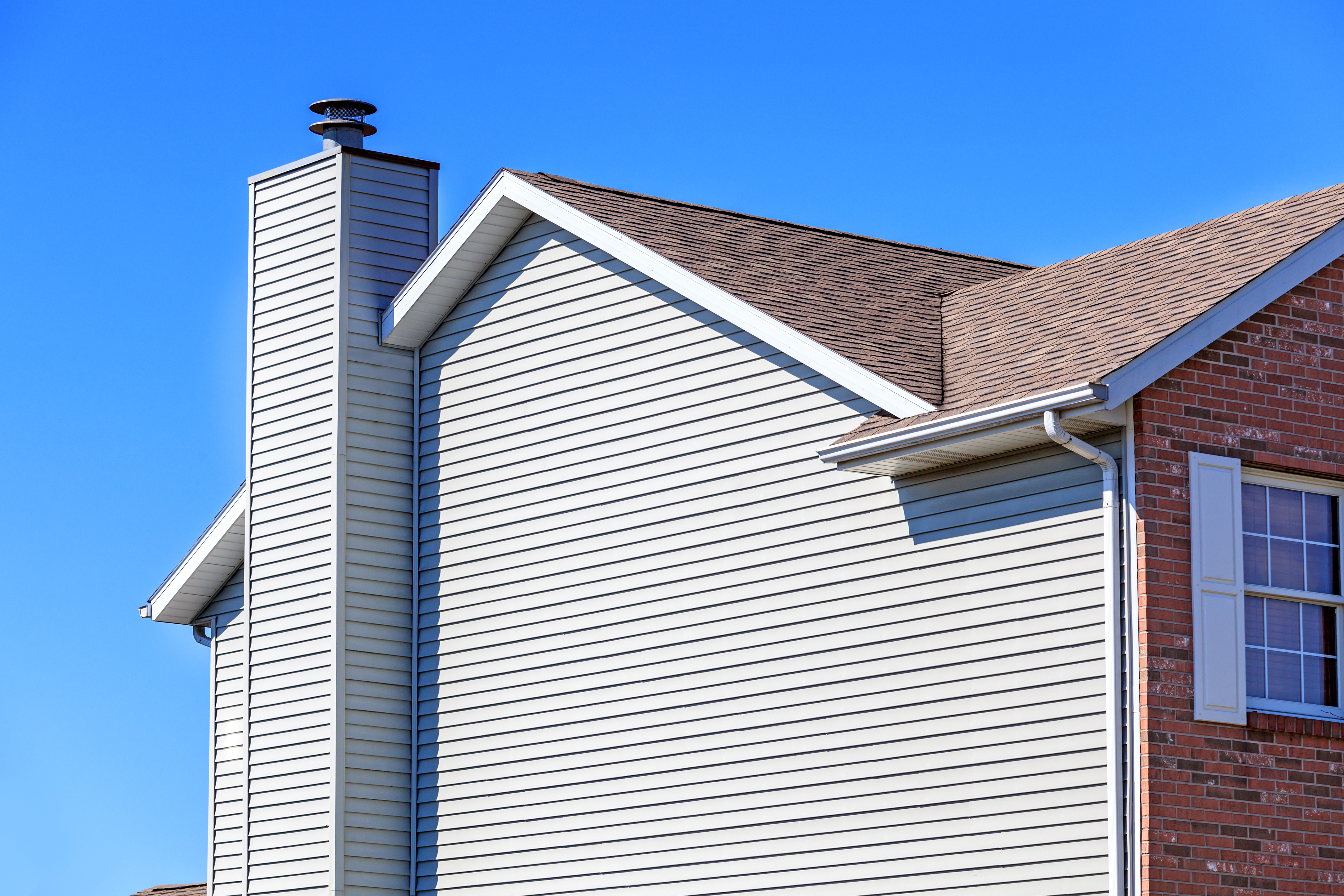
Fiber cement siding is durable, fire-resistant, and affordable. Learn more about fiber cement installation costs in Columbus, OH.
Siding repairs in Boston cost $894 on average, with most homeowners spending between $405 and $1,424.


Fiber cement and vinyl best withstand Boston’s brutal winters, while wood siding requires the most upkeep.
Complex home shapes, tricky access, and historic design rules can all drive up siding repair costs.
Lead paint, asbestos, or hidden water damage often lurk behind Boston siding, so budget for surprises during demo.
Siding repairs in Boston cost $894 on average, but they can range from $140 to $9,483 depending on factors like the extent of damage, siding material, and your home’s accessibility. Boston homes face freezing temperatures, salty air, and strict historic standards, so small fixes done right can make a big difference.
The cost of siding repairs in Boston depends on factors like what the siding’s made of and how much damage New England weather has thrown at it. Salty air, freezing temperatures, and long winters can cause cracking, warping, or water damage that’s expensive to fix, especially when access is tricky or materials are hard to match.

Sometimes repair costs increase with the size of your home, since there’s more surface area where problems can arise and spread. Your home’s shape also plays a role. Homes with simple, flat walls are easier and faster to work on. If the siding wraps around bay windows, trim, or upper stories, repairs take longer and require more precise labor, which can raise the total cost.
| House Size in Square Feet | Average Siding Cost |
|---|---|
| 1,000 | $1,000–$13,500 |
| 1,500 | $1,500–$20,250 |
| 2,000 | $2,000–$27,000 |
| 2,500 | $2,500–$33,750 |
| 3,000 | $3,000–$40,500 |
Siding material plays a big role in Boston repair costs. Some siding options, like fiber cement or vinyl, handle snow, salt, and freeze-thaw cycles better than others. Wood siding needs more upkeep and can be harder to match if you’re only repairing a section.
| Siding Material | Cost per Sq. Ft. | Lifespan | Pros (Boston) | Cons (Boston) |
|---|---|---|---|---|
| Fiber Cement | $5–$14 | 50 years | Stands up to snow, rain, and temperature swings; fire-resistant; low maintenance | Heavy and more expensive to install, especially in cold weather |
| Engineered Wood | $1–$6 | 20–40 years | Mimics the look of traditional clapboard; easier to install than wood | Needs proper sealing to resist Boston’s damp winters; can warp if exposed |
| Vinyl | $3–$12 | 20–40 years | Cost-effective, holds up decently through seasonal shifts, minimal maintenance | Can become brittle in extreme cold; not always allowed in historic districts |
| Wood | $1–$15 | 20–40 years | Matches historic Boston architecture; paintable and easy to customize | Prone to rot, peeling, and insect damage; high upkeep, especially in coastal areas |
| Stucco | $7–$9 | 50+ years | Good insulation; works on masonry homes; can offer a clean, classic look | Cracks with freeze-thaw cycles; not common in traditional Boston neighborhoods |
| Brick Veneer | $3–$10 | 70–100 years | Fits well with Boston’s colonial and Federal-style homes; low maintenance | Hard to match in repairs; moisture issues if not properly sealed |
| Stone Veneer | $5–$11 | 20–75 years | Upscale appearance; blends well with high-end remodels | Pricey; moisture can seep behind it if not carefully installed |
| Aluminum | $3–$6 | 20–40 years | Doesn’t rust, handles snow and ice well, fire-resistant | Dents easily in storms; less insulation for long winters |
Boston’s weather is tough on siding. Snow, wind, salt, and freeze-thaw cycles put steady pressure on siding, especially during long winters and stormy seasons. Wood siding often needs the most attention. Vinyl and engineered wood tend to last longer but can still crack or shift in extreme cold. Even durable materials like fiber cement should be checked periodically for wear, especially around seams and fasteners. Catching small damage early helps avoid major repairs down the line.
Tearing off siding in Boston often uncovers surprises, especially on older homes with layers of paint, patches, or siding that’s been covered over more than once. It’s not unusual to find rotted sheathing, outdated materials, or signs of water damage hiding underneath.
On homes built before the 1980s, there’s also a real possibility of lead paint or asbestos, which requires certified removal and adds time and cost. Plus, Boston has strict disposal rules, particularly for hazardous materials, so it’s smart to set aside 10% to 20% of your siding repair budget for whatever shows up once the demo starts.
Boston’s architecture can heavily influence the cost to repair siding. Homes with multiple stories, decorative cornices, or curved bay windows often require more time and precision to fix properly. In historic districts like Beacon Hill or the South End, the work may also need to meet preservation standards. These kinds of details can increase your costs quite a bit.
Access can be a major factor in siding repair costs across Boston. Triple-deckers, narrow lots, and tight spaces between homes can make certain areas tough to reach. If siding damage is high up, behind a chimney, or blocked by porches or landscaping, crews may need scaffolding, ladders, or extra safety gear to do the job right. All that setup adds time and cost, especially in older neighborhoods where space is limited and homes are packed close together.
Most siding pros include cleanup in their estimate, but bigger repairs can generate more waste than expected, especially if they involve cutting into old wood, removing damaged panels, or dealing with debris behind the walls.
In Boston, certain materials like lead-painted wood or asbestos require proper disposal under city and state regulations. So if the job gets messy or uncovers hazardous materials, expect additional fees for safe removal and hauling.
Siding repairs that involve historic homes or style-sensitive updates may require input from an architect or designer. This is especially true in neighborhoods with preservation rules, like Back Bay or Charlestown, where any visible change might need to match the original look down to the detail. Design fees can range from a few hundred to several thousand dollars, depending on how involved the project is and whether approvals are needed.
Bringing in a siding contractor often comes with more than just the cost of the job. Between local permit fees, contractor insurance, and New England labor rates, the final bill can add up fast.
Labor rates in Boston typically fall between $45 and $85 per hour, or about $1 to $5 per square foot for repairs. Multi-story homes, detailed trim, or hard-to-reach areas can push those rates higher. Contractors who specialize in older or historic homes may also charge more, but their experience can save time and prevent costly problems down the road.
Boston’s permit rules for siding can get tricky, especially if the work touches a historic home, changes materials, or alters the structure. Standard permits usually run $200 to $600, but if the property’s in a protected district or has special zoning quirks, costs can jump higher.
Siding contractors in Boston need to hold a valid Construction Supervisor License or the appropriate specialty registration through the state. They’re also required to carry liability insurance. And while they don’t always need a surety bond, it may be required for certain jobs, especially if the work impacts public property or historic homes.
In Boston, the 6.25% sales tax generally applies to siding materials but not to labor. If a contractor rolls materials and labor into a single price, it’s a good idea to ask how they’re breaking it down just to be clear on what’s actually being taxed.
For some siding repairs, you may need more than a basic siding crew:
Architect: When a Boston siding project involves restoring historic details or blending modern materials with older ones, bringing in an architect can help you preserve the home’s character. Fees typically range from 5% to 20% of the overall project cost.
Structural Engineers: If tearing into the siding exposes damaged framing or anything load-bearing, you may need a structural engineer to ensure the safety of your repair. Expect to pay between $350 and $800 for their evaluation.
Asbestos Abatement Contractors: For older Boston homes, siding may hide asbestos or lead-based paint. A licensed abatement contractor is required for safe removal, with costs generally falling between $1,200 and $3,300.
Yes, siding repairs can raise a home’s value, especially if they clean up visible wear or boost curb appeal before selling. Buyers want homes that look solid and well cared for from the outside, and even partial updates can make a big difference in photos and open houses. Restoring original details on historic homes often adds the most value, particularly in neighborhoods with strict preservation guidelines.
Home is the most important place on earth, which is why Angi has helped more than 150 million homeowners transform their houses into homes they adore. To help homeowners with their next project, Angi provides readers with the most accurate cost data and upholds strict editorial standards. We survey real Angi customers about their project costs to develop the pricing data you see, so you can make the best decisions for you and your home. We pair this data with research from reputable sources, including the U.S. Bureau of Labor Statistics, academic journals, market studies, and interviews with industry experts—all to ensure our prices reflect real-world projects.
Want to help us improve our cost data? Send us a recent project quote to [email protected]. Quotes and personal information will not be shared publicly.
From average costs to expert advice, get all the answers you need to get your job done.

Fiber cement siding is durable, fire-resistant, and affordable. Learn more about fiber cement installation costs in Columbus, OH.

In addition to protecting against extreme Midwest temperatures, new siding in Columbus adds curb appeal. Learn about siding replacement cost in Columbus.

New vinyl siding adds value and curb appeal to homes in Columbus, Ohio. Learn about average vinyl siding installation costs in Columbus, Ohio.

If you plan on completing a wood siding repair yourself, you’ll want to prepare for your project in full. This guide covers everything you need to get started.

By evaluating the pros and cons of fiber cement siding, homeowners can make informed decisions about enhancing their homes' exteriors.

How much does clapboard siding cost? This guide reviews cost factors, prices per square foot, and more to help you plan your budget.